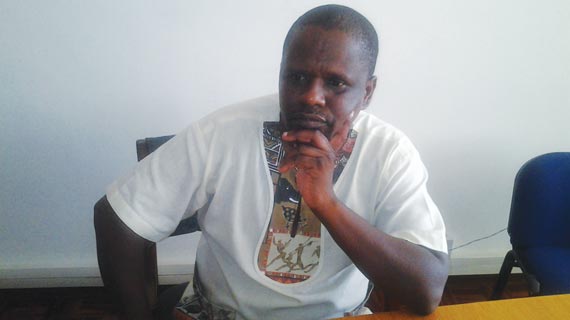
Maxwell J C in his book Five Levels of leadership raises pertinent questions: How does one define leadership? What is a leader? How does leadership work?
He goes on to argue that leadership is not getting a good position, since bad leaders can also occupy good positions.
Alternatively, a good leader can go without a position. What a paradox, yet true.
The ongoing salarygate is a good example to the effect that bad leaders can occupy good positions.
Leithwood et al (1999), Yukl (2002) view leadership as broad and multi-faceted. It is a complex human exercise that is hard to define or describe. On the other hand, McCloskey sees the leadership concept as a construct or big word meaning a conceptual reference point regarding a complex configuration of approaches in a given situation.
Different definitions of leadership point to the fact that leadership is an observable phenomenon, yet the least understood.
Leadership can take on various forms. It can be transformational or it can take in dimensions of change. Buhler (1995) views a leader as someone who knows what to do next and why, including commandeering relevant resources necessary for the assignment. In addition, Munson (1981) adds the inspirational dimension. He sees leadership as, “the creative and directive force of morale”.
Lost in the forest of leadership definitions, one yearns for a suitable and relevant definition of leadership. An appropriate definition is inescapable, since everything rises and falls on leadership.
- Chamisa under fire over US$120K donation
- Mavhunga puts DeMbare into Chibuku quarterfinals
- Pension funds bet on Cabora Bassa oilfields
- Councils defy govt fire tender directive
Keep Reading
Maxwell sees leading as a verb and not a noun. Leadership is a process and not a position, it is a continuum. Leadership unlike management, deals with people and their dynamics which are continually changing and are never static. The challenge facing leadership is in creating change and facilitating growth. Hence the need to graduate from one level to another.
Maxwell’s five levels of leadership clearly explain this movement from level one to five.
Below are the said levels: 5 Pinnacle respect, 4 People development, reproduction, 3 Production results, 2 Permission relationships, 1 Position rights.
Position-based leaders derive their power from conditions and regulations. Put differently from rights, people have no choice, but follow the leader because they have to.
At level two, the leader and followers form relationships on their own volition, followership chooses to follow the leader.
Level three is results-based. People follow the leader as a result of what the leader has done for the organisation.
Reproduction or self-replication by the leader takes place at level four. People follow the leader resulting from what the leader has done for them.
The pinnacle, level five, earns the leader respect, deriving from the followers esteem for the leader, as well as what the leader represents — the value system as it were. The unfortunate part in leadership is when a leader is content with level one. At this level bossism thrives and subordination is the order of the day.
Progressive leaders move from rights-based positions to forming relationships, a team approach to issues. Dissatisfied with relationships the leader graduates into the production zone.
The good results are the outcome of team efforts. The continuum proceeds to reproducing or replicating oneself in the form of followers who would have been developed into accomplished and responsible people. This in turn, earns the leader respect owing to what the leader stands for or their emulated value system. A good leader’s focus is on advancing the team than oneself.
Reverting to the salarygate, one sees how bad and callous the mentioned leaders are. Imagine workers going for six to seven months without a salary in the case of ZBC! In the case of PSMAS, members of the society could not access medical care and medication, since the medical society did not remit funds deducted from members to respective service providers.
These are leaders who remain comfortable at level one, the rights-based approach. Such leaders’ concern is about themselves alone. Only posterity will tell how many patients who could have been saved died from this callous neglect of public duty.
In fact, dependents or relatives of such unfortunate deceased people can raise litigation in terms of Section 48(1) of the Constitution: Right to Life.
Interestingly, each level of leadership is a practice that leads to effectiveness. Levels develop into principles. A practice is an action which may be confined to one situation, while a principle is an external truth which is as reliable as a physical law. It is universal, and timeless; it is not a democratic issue but redemptive in nature. Principles enable one to make wise and informed decisions, while values are informed by internalised principles.
There is a scarcity of leaders whose ethical wiring and chemistry mixture is divinely engineered and controlled.
Moses Tsimukeni Mahlangu is the general secretary for Zimbabwe Urban Councils Workers’ Union. He is a labour consultant and arbitrator. Feedback: Email: [email protected] Cell: 0775 547 120 or 0712 864 275










